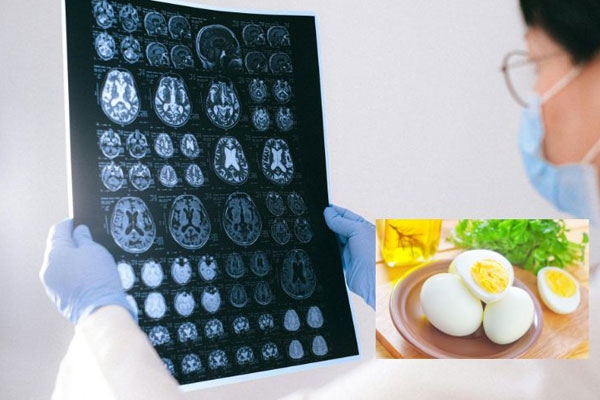
(Image source from: Canva.com)
Researchers have found an unexpected connection between brain health and a well-known breakfast item that could significantly change how you start your day. A new study suggests that having eggs every morning may enhance brain performance and greatly reduce the risk of Alzheimer’s disease by around 50 percent. The research, titled ‘Association of Egg Intake with Alzheimer’s Dementia Risk in Older Adults: The Rush Memory and Ageing Project,’ followed 1,024 individuals (average age: 81.4 years) for over seven years, all of whom initially showed no signs of dementia. Those who consumed more than one egg each week had a lower chance of developing the disease. Brain autopsies revealed fewer indicators related to Alzheimer’s as well. According to the unique findings from this study, published in the Journal of Nutrition, eating above one egg weekly can significantly decrease the occurrence of Alzheimer’s Disease in older individuals.
By the end of the research, 280 participants had been diagnosed with Alzheimer's disease. However, those who ate more than one egg weekly had about a 50 percent reduced risk compared to those who had fewer. The benefits were not just limited to memory tests but included actual biological markers of Alzheimer’s in the brain. Eggs are rich in choline, an essential nutrient that helps create acetylcholine, a neurotransmitter that is crucial for learning and memory. Additionally, egg yolks contain lutein, which has antioxidant properties that help protect brain cells from inflammation and damage. Choline is found in animal-based foods, particularly in egg yolks, as well as in fish like tuna and salmon, turkey, chicken, and dairy such as milk. While foods like broccoli, peanuts, salmon, and mushrooms also contain choline, eggs are considered one of the best sources, with one serving providing up to 25 percent of your daily choline needs.
Choline alone accounted for about 39 percent of the brain-boosting effects noted in the study. Furthermore, omega-3 fatty acids and lutein, both plentiful in eggs, have been shown to enhance brain function and help prevent cognitive decline that comes with aging. The study emphasizes the possible importance of diet in delaying or even preventing one of the most feared neurodegenerative diseases.
Simple changes in diet, like incorporating eggs into meals each week, could have a profound effect on the rising cases of Alzheimer’s due to an aging population. The researchers also conducted brain autopsies on 578 deceased participants. The findings from the examination, which assessed the brain’s indicators of Alzheimer’s disease, were surprising.
Individuals who consumed more than one egg weekly showed the following characteristics:
- Fewer amyloid plaques: Collections of proteins associated with Alzheimer’s.
- Fewer neurofibrillary tangles: Twisted fibers within brain cells that hinder brain functionality, leading to cognitive issues.
These findings suggest that eating eggs regularly is associated with a lower chance of developing AD problems and Alzheimer’s dementia, and that choline in our diet helps explain the connection between these two issues. However, specialists caution against eating too many eggs even though the results are positive.














